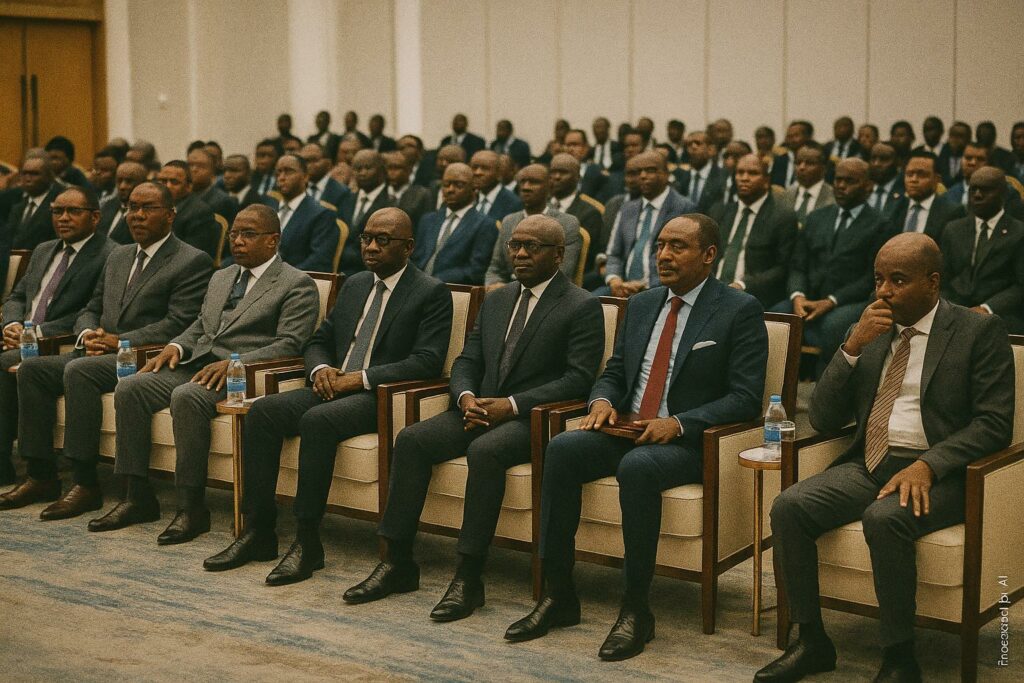A Development Pact Sealed in Brazzaville
Few diplomatic ceremonies in Brazzaville have carried as much technocratic symbolism as the July 2025 launch of the Project for the Improvement of Electricity Services, universally abbreviated as PASEL. Flanked by cabinet colleagues, Minister of Energy and Hydraulics Emile Ouosso welcomed senior World Bank officials, including regional energy director Jie Tang, to underscore a shared conviction: reliable electricity is the sine qua non of economic diversification. The tone was neither triumphalist nor apologetic; rather it reflected a calibrated optimism that echoes the priorities of the National Development Plan 2022-2026 (Ministry of Planning, 2024).
Strategic Financing and the Numbers Behind the Narrative
PASEL’s envelope of 100 million US dollars accounts for roughly eleven percent of the Bank’s active portfolio in the Republic of Congo, a figure confirmed in the latest Implementation Status Report (World Bank, 2025). Structurally, the project combines an International Development Association credit and a modest grant window, an architecture intended to preserve fiscal space while accelerating disbursements. Government co-financing is programmed through counterpart funds embedded in the 2025 budget law, a mechanism that reinforces local ownership without over-stretching treasury balances already affected by hydrocarbon price volatility.
Strengthening the Pointe-Noire–Brazzaville Spine
Technically, PASEL’s flagship component is the reinforcement of the 400-kilometre high-voltage corridor linking the coastal hub of Pointe-Noire to the political capital. Transmission bottlenecks on this axis currently incur line losses estimated at twelve percent, according to the public utility Énergie Électrique du Congo, E2C (E2C Operational Review, 2024). By financing six high-capacity transformers and ancillary substations, the project aims to lift transfer capability by at least 200 MW, a margin deemed sufficient to absorb output from the upcoming Sounda hydroelectric extension once it becomes operational.
Tackling Commercial Losses and Utility Governance
Beyond hardware, PASEL ventures into the politically sensitive terrain of commercial discipline. E2C’s non-technical losses—illegal tapping, faulty metering and billing inefficiencies—hover around thirty percent, a ratio that erodes the firm’s ability to cover operational expenditure. The introduction of advanced metering infrastructure across priority districts of Brazzaville and Pointe-Noire is expected to halve that figure over five years, while a new revenue protection unit, staffed through merit-based recruitment, will institutionalise the gains. Bank experts emphasise that such managerial reforms are inseparable from the broader good-governance agenda articulated in the Governance Compact signed with international partners in 2022 (World Bank Governance Note, 2023).
Toward Universal Access: Planning at Least-Cost
Congolese authorities have repeatedly stated that electricity is more than a commodity; it is a vector of national cohesion. The forthcoming National Electrification Strategy, prepared with Swedish trust-fund support, adopts a least-cost geospatial model to extend the grid where viable and deploy off-grid solar mini-grids where densities remain low. By aligning with the Pacte Énergétique national and the M300 initiative aimed at connecting three hundred localities by 2030, the plan situates PASEL within a continuum of policy efforts rather than a stand-alone experiment. Early drafts project that universal access, currently at forty-seven percent, could reach seventy-five percent by 2030, an ambition considered credible by regional think-tank EERAfrica (EERAfrica Policy Brief, 2024).
Transparency Safeguards and Diplomatic Confidence
Multilateral engagement invariably raises questions of governance. PASEL therefore incorporates a digital monitoring platform that publishes procurement milestones and performance indicators in near real time. The decision echoes lessons drawn from peer projects in Côte d’Ivoire and Rwanda, where open data dashboards helped sustain public confidence and donor alignment. For Brazzaville, the move resonates with President Denis Sassou Nguesso’s 2023 address to parliament, in which he underscored transparency as a cornerstone of the national reform agenda.
Socio-Economic Dividends on the Horizon
The macro-fiscal returns of enhanced electrification are well documented. A recent International Monetary Fund staff report suggests that each percentage point increase in reliable electricity access could add 0.15 percentage points to Congo’s non-oil GDP growth (IMF Article IV Consultation, 2024). At micro level, small and medium-sized enterprises in the manufacturing clusters of Makoua and Dolisie cite erratic power as their foremost constraint, a finding corroborated by the latest Enterprise Survey. Reduced outages should therefore unlock latent productivity while improving household welfare, notably through longer study hours and safer refrigeration of medicines.
Yet seasoned observers caution that infrastructure alone rarely suffices. Capacity-building within E2C, prudent tariff policy and continued dialogue with civil society will be essential to convert kilowatt-hours into inclusive development. In that sense, PASEL is less a destination than a catalyst—a view echoed by Minister Ouosso, who concluded the launch ceremony with a conciliatory reminder of collective responsibility.

